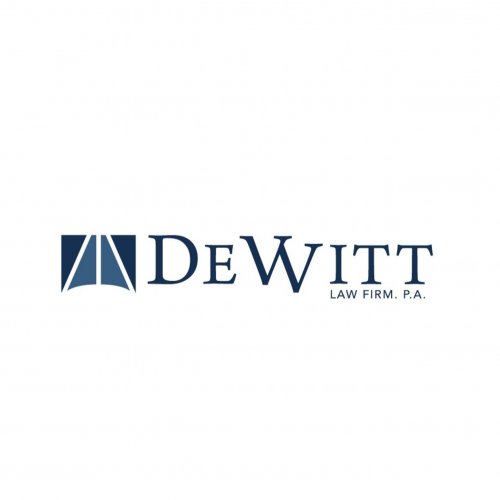Best Conveyancing Lawyers in Florida
Share your needs with us, get contacted by law firms.
Free. Takes 2 min.
Free Guide to Hiring a Real Estate Lawyer
Or refine your search by selecting a city:
List of the best lawyers in Florida, United States
About Conveyancing Law in Florida, United States
Conveyancing in Florida refers to the legal and administrative process of transferring property ownership from one party to another. It involves a series of steps that ensure the sale or transfer is valid, legally binding, and free of issues such as claims or disputes. Florida’s property laws have particular requirements that must be met during these transactions, which commonly involve residential and commercial real estate. Conveyancing ensures that the documents are properly prepared, signed, and recorded so that the buyer receives clear and marketable title to the property.
Why You May Need a Lawyer
While some property transactions in Florida may seem straightforward, many individuals find themselves needing a lawyer during conveyancing for several reasons:
- Complex Property Transactions: Commercial deals, transactions involving estates, or unique property types can be complicated.
- Title Issues: Problems such as unpaid property taxes, liens, or ownership disputes may arise.
- Contract Review and Negotiation: Ensuring contracts are fair and legally compliant protects your interests.
- Legal Requirements: Florida has specific rules about disclosures, title transfers, and recording deeds.
- Mortgage and Financing Complications: Transactions often involve intricate financing arrangements that require legal oversight.
- Mitigating Risks: Lawyers help foresee and prevent legal problems throughout the process.
Local Laws Overview
Florida’s laws impose several key requirements on property transfers:
- Written Contracts: Real estate transactions must be in writing to be enforceable, per the Florida Statute of Frauds.
- Disclosure Laws: Sellers must disclose known material defects that could affect the value or safety of the property.
- Title Insurance: Title searches are standard, and buyers often purchase title insurance to protect against future claims.
- Document Recording: Deeds must be signed by the seller in the presence of two witnesses and a notary, then filed with the county Clerk of Court.
- Homestead Exemptions: Florida law offers significant protections and tax benefits for primary residences defined as homestead property.
- Closing Procedures: The closing process is regulated and must include precise documentation of funds, prorated taxes, and final walk-throughs.
Frequently Asked Questions
What is conveyancing and how does it apply in Florida?
Conveyancing is the process of legally transferring property ownership from seller to buyer. In Florida, it includes preparing, reviewing, and recording the necessary legal documents and ensuring compliance with state laws.
Do I need a lawyer for real estate transactions in Florida?
While not always legally required, hiring a lawyer is highly recommended for most property transactions to safeguard your interests, handle complex documents, and resolve potential disputes.
Who pays closing costs in Florida?
Closing costs are negotiable, but traditionally, sellers cover title insurance and documentary stamp taxes while buyers pay for loan-related fees, inspections, and some administrative expenses.
What must be disclosed by the seller?
Sellers are legally required to disclose known material defects that are not obvious to buyers and could affect the property’s value or safety.
How are deeds transferred and recorded?
After execution, deeds must be signed by the seller in front of two witnesses and a notary, then recorded in the county’s official records to ensure the buyer’s ownership is legally recognized.
What is title insurance and is it required?
Title insurance protects buyers and lenders against future claims or disputes over ownership. While not legally required, it is highly recommended and usually standard practice in Florida transactions.
How long does the conveyancing process take?
The process generally takes between 30 and 60 days, though this can vary depending on the complexity of the transaction and any issues uncovered during due diligence.
What happens at closing?
At closing, all parties sign the required legal documents, funds are transferred, and the deed is officially recorded. The buyer receives legal ownership of the property at this stage.
How do property taxes work during the sale?
Property taxes are prorated at closing between the seller and buyer based on the time each party owns the property during the tax year.
Can issues arise after closing?
Problems such as unrecorded liens, undisclosed defects, or title challenges may arise after closing. Title insurance and proper legal representation help protect against these risks.
Additional Resources
Individuals seeking further information or assistance on conveyancing in Florida may refer to the following resources:
- The Florida Bar: Provides public information and a lawyer referral service for real estate matters.
- Florida Department of Revenue: Offers guidance on property tax laws and exemptions.
- County Clerk of Court Offices: Handle the recording of property documents and provide records access.
- Florida Land Title Association: Supplies educational materials on title insurance and industry standards.
- Florida Realtors Association: Connects to licensed real estate professionals and shares consumer guides.
Next Steps
If you need help with conveyancing in Florida, consider taking the following steps:
- Gather all documents related to your property transaction, including contracts, surveys, and correspondence.
- Contact a Florida bar-licensed real estate attorney to review your specific situation and advise on your rights and obligations.
- Ask the attorney for a clear explanation of fees, timelines, and what to expect during the process.
- Work closely with your attorney and any involved real estate agents to ensure all legal requirements are met.
- Follow up with local authorities, such as the county clerk, to verify that your transaction documents have been properly recorded.
Taking these proactive steps helps protect your interests and ensures a smooth transfer of property ownership in Florida.
Lawzana helps you find the best lawyers and law firms in Florida through a curated and pre-screened list of qualified legal professionals. Our platform offers rankings and detailed profiles of attorneys and law firms, allowing you to compare based on practice areas, including Conveyancing, experience, and client feedback.
Each profile includes a description of the firm's areas of practice, client reviews, team members and partners, year of establishment, spoken languages, office locations, contact information, social media presence, and any published articles or resources. Most firms on our platform speak English and are experienced in both local and international legal matters.
Get a quote from top-rated law firms in Florida, United States — quickly, securely, and without unnecessary hassle.
Disclaimer:
The information provided on this page is for general informational purposes only and does not constitute legal advice. While we strive to ensure the accuracy and relevance of the content, legal information may change over time, and interpretations of the law can vary. You should always consult with a qualified legal professional for advice specific to your situation.
We disclaim all liability for actions taken or not taken based on the content of this page. If you believe any information is incorrect or outdated, please contact us, and we will review and update it where appropriate.
Browse conveyancing law firms by city in Florida
Refine your search by selecting a city.
















